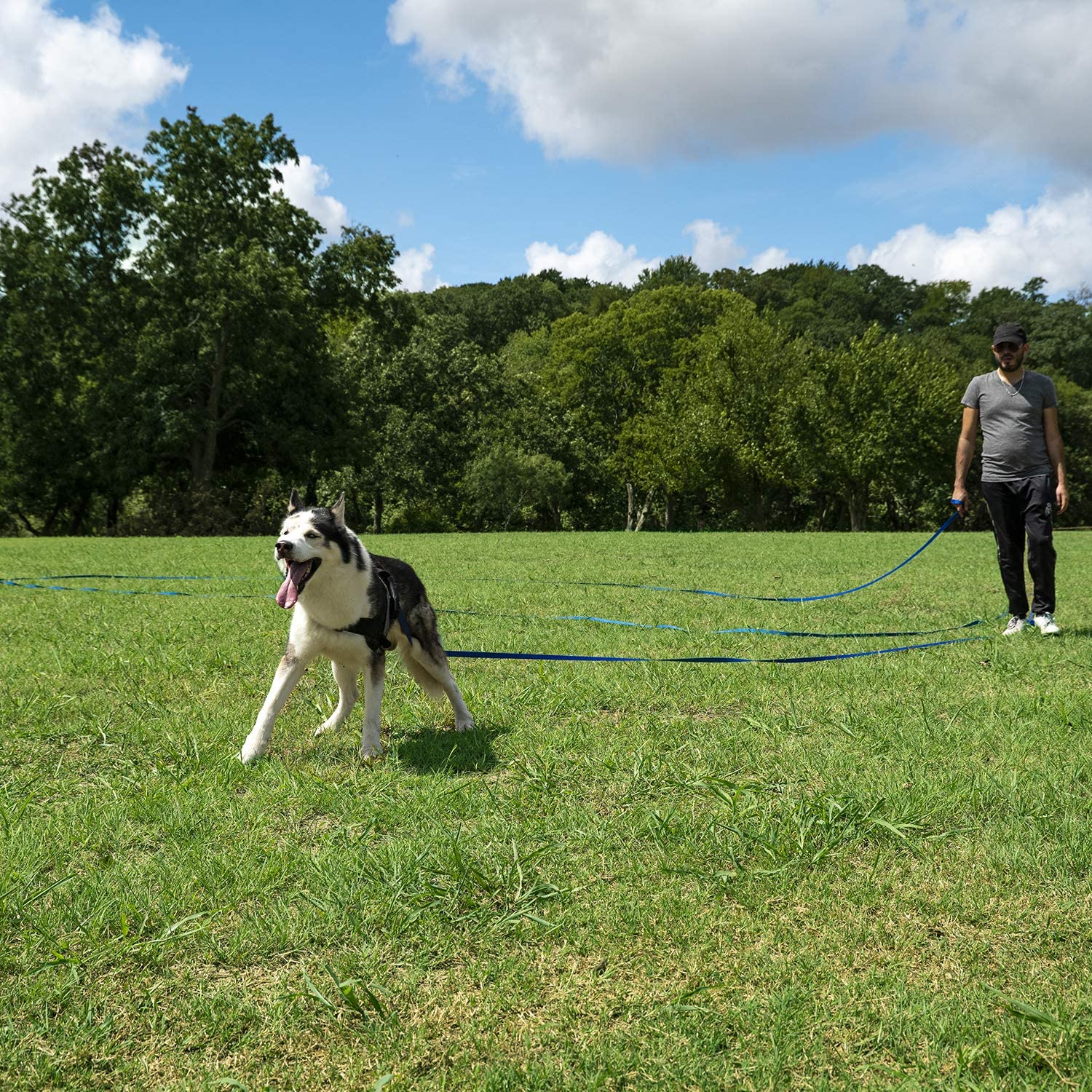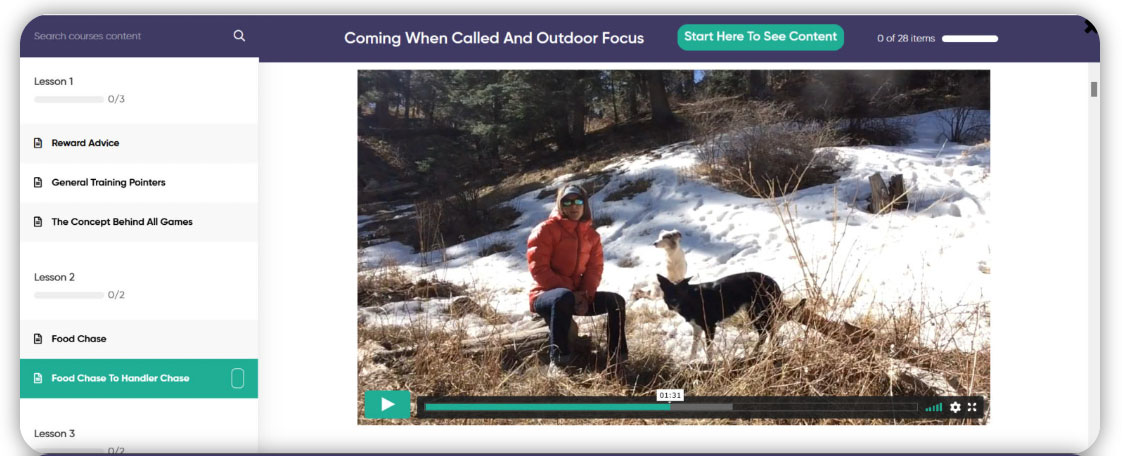
Training your Bichon Frise to come when called is an essential skill for any dog owner. Not only does it ensure your dog’s safety, but it also allows you to give them the freedom to explore and play off-leash. However, training your Bichon Frise to come when called can be a challenging task, especially if they are easily distracted or have a strong prey drive. I
n this article, we will provide you with tips and techniques for training your Bichon Frise to come when called, so you can enjoy the peace of mind that comes with a well-trained dog.
Note: For a complete training, we highly recommend this SpiritDog Online Training Course “Coming When Called”.
1. Start with a Strong Foundation
Before you begin training your bichon frise to come when called, it’s crucial to establish a strong bond with your pet. Spend time playing with your dog, engaging in activities they enjoy, and providing positive reinforcement through praise and treats. Building trust and a strong connection with your bichon frise will make them more likely to respond positively to your commands.
2. Choose a Distinct Command Word
Select a specific word or phrase for the recall command, such as “come” or “here.” Ensure that the command is distinct from other commands you use and that all family members use the same word consistently. Consistency is critical to avoid confusing your bichon frise and ensuring that they understand what you expect from them.
3. Begin Training Your Bichon Frise in a Controlled Environment
Start training your bichon frise to come when called in a controlled, distraction-free environment like your home or a fenced yard. In the early stages of training, it’s essential to minimize distractions to help your dog focus on learning the new command. As your dog becomes more reliable in responding to the recall command, gradually introduce distractions and practice in various environments.
4. Use Positive Reinforcement with Your Bichon Frise
When training your bichon frise to come when called, always use positive reinforcement techniques. Reward your pup with praise, treats, or playtime when they respond to your recall command. This will help create a positive association with the command and motivate your dog to respond consistently. Remember to be patient and consistent in your training, as it may take time for your dog to master the recall command.
If you’re using treats, these are currently the most popular training treats on Amazon.
5. Gradually Increase Distance and Distractions
As your bichon frise becomes more reliable in responding to the recall command in a controlled environment, begin to increase the distance between you and your dog during training sessions. Practice calling your dog from various distances and gradually introduce distractions, such as other dogs, people, or toys. This will help your dog learn to respond to the command even in challenging situations.
Related: Looking for the fastest way to train your bichon frise to come when called? Try this video course.
6. Make Yourself Interesting and Rewarding to Your Bichon Frise
To encourage your bichon frise to come when called, make yourself more appealing and rewarding to your dog. Use an enthusiastic, high-pitched voice when calling your dog, and reward them with a treat or praise when they respond. You can also try running away from your dog when calling them, as this can entice your dog to chase after you and respond to the recall command.
7. Never Punish Your Bichon Frise for Coming When Called
It’s essential to avoid punishing your bichon frise if they do not immediately respond to the recall command or if they come to you slowly. Punishing your dog can create a negative association with the command and make them less likely to respond in the future. Instead, be patient and continue to practice and reinforce the command using positive reinforcement techniques.
8. Practice the Recall Command Regularly with Your Bichon Frise
Consistent practice is crucial for training your bichon frise to come when called. Incorporate recall training into your dog’s daily routine, and practice the command in various environments and situations. This will help reinforce the behavior and make it more reliable over time.
9. Use a Long Training Leash on Your Bichon Frise
When transitioning from a controlled environment to a more open space, consider using a long training leash to maintain control over your bichon frise while they learn to respond to the recall command. This will help you avoid losing control of your dog and provide a safety measure as you gradually increase the distance and distractions during training sessions.
This is the most popular long training leash on Amazon.
10. Be Patient and Persistent with Your Bichon Frise
Training your bichon frise to come when called takes time, patience, and persistence. Some dogs may learn the command quickly, while others may require more time and consistent practice. Be patient with your dog and maintain a positive attitude during training sessions. Remember that every dog is unique, and the key to success is consistent practice and positive reinforcement.
11. Use a Professional Online Bichon Frise Training Course
While this article provides many helpful tips for training your bichon frise, you can increase your chances of success by enlisting the help of a professional online dog trainer. We love the SpiritDog online courses, since its includes unlimited questions with a real dog trainer.
You can check out their Teach Your Bichon Frise to Come Online Course Here
In conclusion, training your Bichon Frise to come when called is an important aspect of responsible dog ownership. With patience, consistency, and positive reinforcement, you can teach your furry friend to respond promptly to your recall command, even in challenging situations. Remember to keep training sessions short and enjoyable for your dog, and to always reward good behavior with treats, praise, and affection. By following the tips and techniques outlined in this article, you can strengthen the bond between you and your Bichon Frise and enjoy a lifetime of safe and happy adventures together.
More Frequently Asked Questions For Training Your Bichon Frise
1. How can I potty train my Bichon Frise?
Potty training your Bichon Frise can be challenging, but it is an essential part of their training. The best way to potty train your Bichon Frise is through consistency and positive reinforcement.
To start, establish a routine for taking your Bichon Frise outside to use the bathroom. Take them out first thing in the morning, after meals, before bedtime, and every two to three hours in between. Be sure to use a specific command like “go potty” so that your dog can associate the phrase with the action.
When your Bichon Frise goes potty outside, reward them with treats and lots of praise. If they have an accident inside, avoid scolding or punishing them, as this will only make them fearful and anxious. Instead, clean up the mess and redirect your dog’s attention to their designated potty area.
Consistency is key when potty training your Bichon Frise, so be patient and stick to the routine. With time and effort, your dog will learn to associate going potty with going outside and will eventually become fully potty trained.
2. How can I stop my Bichon Frise from barking excessively?
Bichon Frises are known for being vocal dogs, and while barking is a natural behavior, excessive barking can be a problem. To stop your Bichon Frise from barking excessively, you need to identify the cause of the behavior and address it accordingly.
One common cause of excessive barking is boredom or lack of stimulation. To combat this, provide your Bichon Frise with plenty of toys and interactive activities to keep them mentally stimulated. Regular exercise and playtime can also help to tire your dog out and reduce their barking.
Another common cause of excessive barking is anxiety or fear. If your Bichon Frise barks excessively when they are left alone or in new situations, they may be experiencing separation anxiety or general anxiety. In this case, you may need to work with a professional dog trainer or behaviorist to address the underlying issue.
Training your Bichon Frise to obey commands like “quiet” or “stop” can also help to reduce excessive barking. When your dog barks excessively, use a firm but calm voice to give the command, and reward them when they stop barking.
3. How can I teach my Bichon Frise to walk on a leash?
Teaching your Bichon Frise to walk on a leash is an essential part of their training, and it requires patience and consistency. Start by introducing your dog to the leash and collar gradually, allowing them to sniff and investigate the new items.
Once your dog is comfortable wearing the leash and collar, practice walking indoors in a quiet, low-distraction area. Use treats and positive reinforcement to reward your dog for walking calmly and staying by your side.
When your dog is comfortable walking indoors, move to an outdoor environment with more distractions. Be patient and consistent, rewarding your dog for walking calmly and staying by your side. If your Bichon Frise pulls or tries to run, stop walking and stand still until they calm down. Then, start walking again and reward them for walking calmly.
Consistency is key when teaching your Bichon Frise to walk on a leash, so be patient and stick to the routine. With time and effort, your dog will learn to enjoy walking on a leash and will be a well-behaved walking companion.
4. What’s the best online course for teaching a bichon frise to come when called? At iHeartDogs, we recommend the SpiritDog online course “Coming When Called.” The course includes unlimited questions with a real dog trainer.
iHeartDogs is reader supported. Our articles contain affiliate links where we are paid a small commission for linking to a product at no additional cost to the reader.



 Toledo, United States.
Toledo, United States.